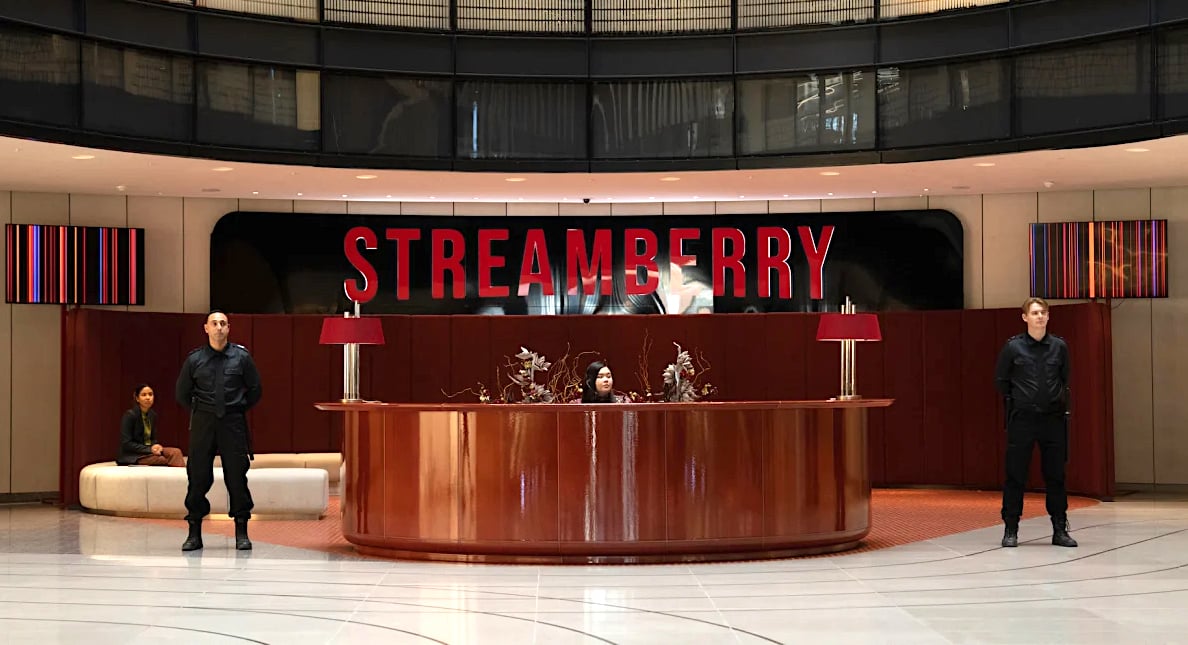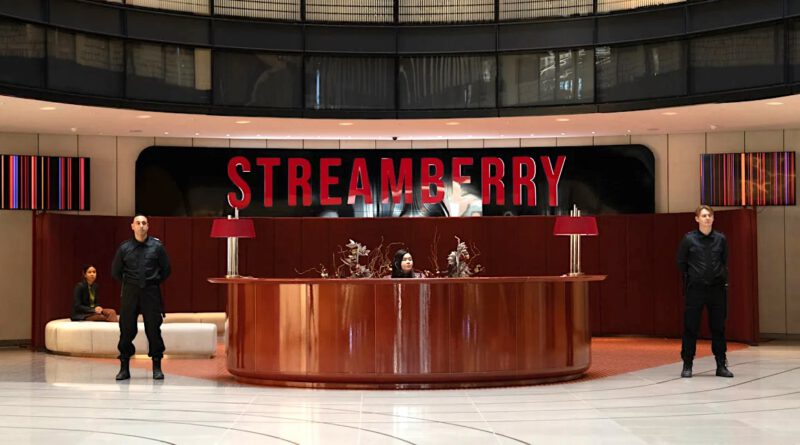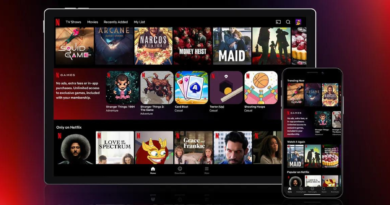Sorry Netflix, Streamberry isn’t funny

Now the dust has settled on Black Mirror Season 6, we’re getting a sense of which episodes divided the most viewers. If reviews and comments are any guide, the season opener “Joan is Awful,” and to a lesser extent its follow-up “Loch Henry,” fall in the highly divisive camp. And that may have something to do with the parody version of Netflix that both episodes aim to skewer: Streamberry.
On one level, “Joan is Awful” — in which a Streamberry viewer discovering that her life is being used as the plot of a show on the service — is a clever, funny meta-story that reminded me of one of my favorite Black Mirror episodes, the interactive “Bandersnatch”. That multi-threaded story ended one of its plots by introducing Netflix into the narrative. But that a bit of whimsy, and at least it was upfront about being meta. Netflix was Netflix.
The problem with Streamberry is this: it’s a cartoon-villain version of itself that Netflix has embraced with malevolent glee. There is no subtlety at work, no allowing your brain to make the connection. You know in your gut as a viewer, as soon as you hear the Netflix “TUDUM” sound, which real company this fictional company is supposed to be.
And that puts a whole different, darker spin on the thing — one that creator Charlie Brooker didn’t intend. At the exact moment of the WGA writer’s strike, an impasse caused in part by the streaming service’s refusal to discuss its plans for AI writing, here is Netflix signaling to writers that it, as Streamberry, might just AI-write the hell out of its shows.
To use an old meme we used to apply to Facebook a decade ago, before its worst excesses: Honey badger don’t care.
As the company cracks down on password sharing, here’s a story that tells viewers Streamberry is preying on their insecurity. And guess what: they’ll love it so much, they’ll even put their own faces on Netflix (ahem, “Streamberry”) marketing.
How Black Mirror is that? Brooker, often hailed as a Cassandra for predicting dark futures that seem to come to pass, may this time have enabled one of the biggest of Big Tech giants in the present moment.
Netflix was ‘weirdly’ on board with Streamberry
Netflix “went away and came back quite quickly — weirdly quickly — and said, ‘Yeah, okay'” to the whole Streamberry concept, Brooker told Empire magazine. “There wasn’t any resistance to it, that I could tell. Which is a bit disappointing, because it would be good to be able to say ‘I just did it anyway, because I’m an anarchist!’ But no.”
We’ve seen this story before. Satire, far from skewering, can enable some pretty awful things if the target of the satire learns to play along.
Brooker’s native Britain has learned this lesson the hard way. I’m old enough to remember 2003, when a former journalist and MP known for stretching the truth got a chance to host the BBC’s popular and anarchic quiz show Have I Got News For You. He was roasted by the panelists over his conduct, and put in such a hapless, buffoonish performance that it was thought to be career-ending. His name was Boris Johnson. I was among hundreds of thousands who snapped up the BBC DVD with the entire unedited-for-TV version, “The Full Boris.”
And how did Johnson respond? Not by wishing The Full Boris would go away, but by embracing it and going beyond. His next published collection of right-wing rants was called Have I Got Views For You, and featured him on the cover dressed as Napoleon. Little did we know then that this Napoleon was well on his way to leading the UK out of the European Union, and into economic disaster, with a busload of oafish lies.
The Boris moment
Brooker should know this better than most, because he was paying attention to the long-term ramifications more than most. How do we know this? Because of what is (low-key) one of the best Black Mirror episodes: “The Waldo Moment.” The eponymous cartoon bear becomes a dictator because audiences enjoyed how anarchic he was. And the bear was pretty much BoJo.
“Boris Johnson was very present in my thoughts as I wrote this,” Brooker told Time Out when “Waldo” aired in 2013, three years before the Brexit vote. “He’s basically a character from a comedy panel show. He can dangle off a cable – he could shit on the floor – and people would still love him. So you have the disconnect between people and politicians, and questions about what satirists stand for.”
Something similar happened in the U.S. with both Saturday Night Live and Jimmy Fallon enabling Donald Trump, but that’s a whole other story. The question of what horrors Trump has unleashed via his own embrace of self-parody has enough answers for a library full of academic papers.
More concerning in the (hopefully) post-Trump era is the way that other satirical targets are starting to catch on to the whole concept. Elon Musk may have a supremely thin skin, but he’d still rather be roasted daily on Twitter than not talked about. Besides, his blue-check fans have a way of coming up with grossly positive parodies of their own, usually involving Musk being some kind of muscled strongman. Jeff Bezos seems to have been testing the same waters: as I wrote last year, the billionaire duo are suddenly all-in on shitposting and right-wing populism.
In 2023, corporations are joining in. Warner Bros was happy to be portrayed as a sinister pusher of content in the final season of Barry. Mattel has signed off on being the antagonist in the highly meta Barbie movie. And now, Netflix is Streamberry, laughing all the way to the bank with its password crackdown, parodying writers’ genuine concerns about AI with its “quamputer,” guarded by the most cuddly non-threatening face in Hollywood, that of Michael Cera.
Hey, a corporation can’t be all bad if they can take this savage a joke, right?
Where does this all end? What is the corporate equivalent of Boris Johnson crashing the UK out of the EU, the thing we couldn’t see two decades before it happened? We don’t know. We need a Black Mirror episode that can predict it for us, beyond the extreme minute or so of global dictatorship glimpsed at the end of “The Waldo Moment”.
For now, we can only guess at how Charlie Brooker will feel if it turns out his creation provided comedy cover for Netflix’s greed, if the writer’s strike is ground down by a company that can simply sit back and smirk. But the best sense of it may come from the scene he wrote at the end of “Loch Henry,” when the shellshocked writer at the center of the latest true crime hit on the streaming service retires to his hotel room and drinks the most desultory drink of celebratory champagne ever consumed.
It arrives on a tray marked “From your friends at Streamberry.”


